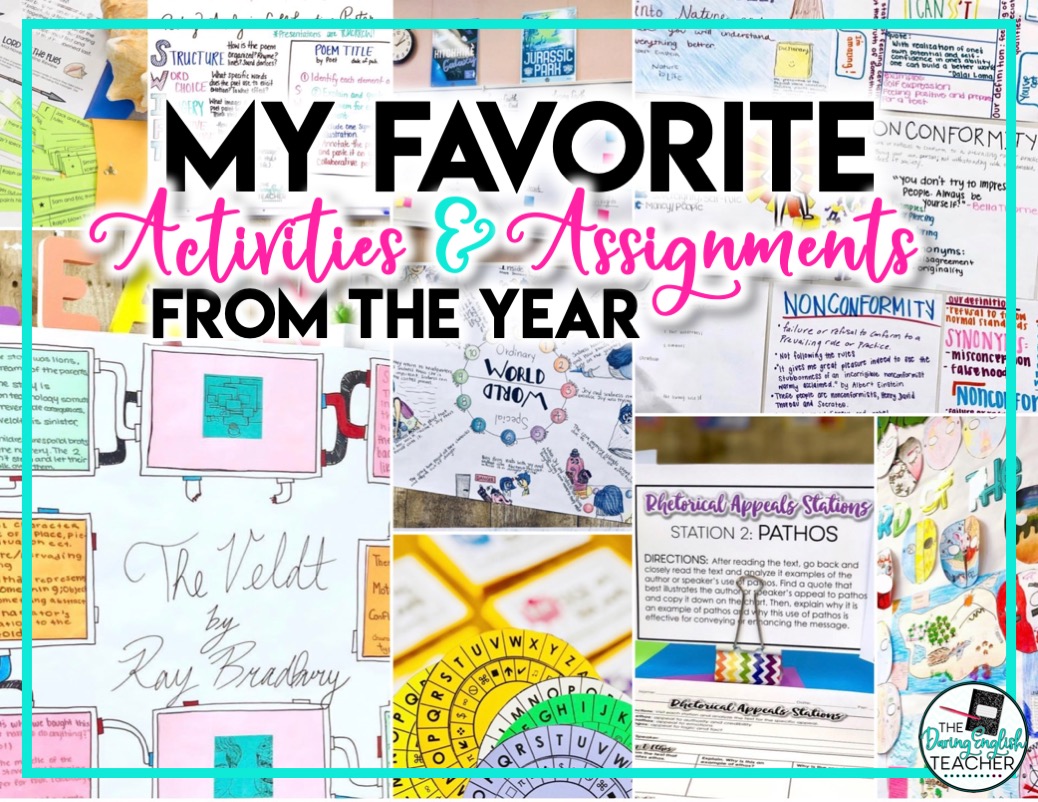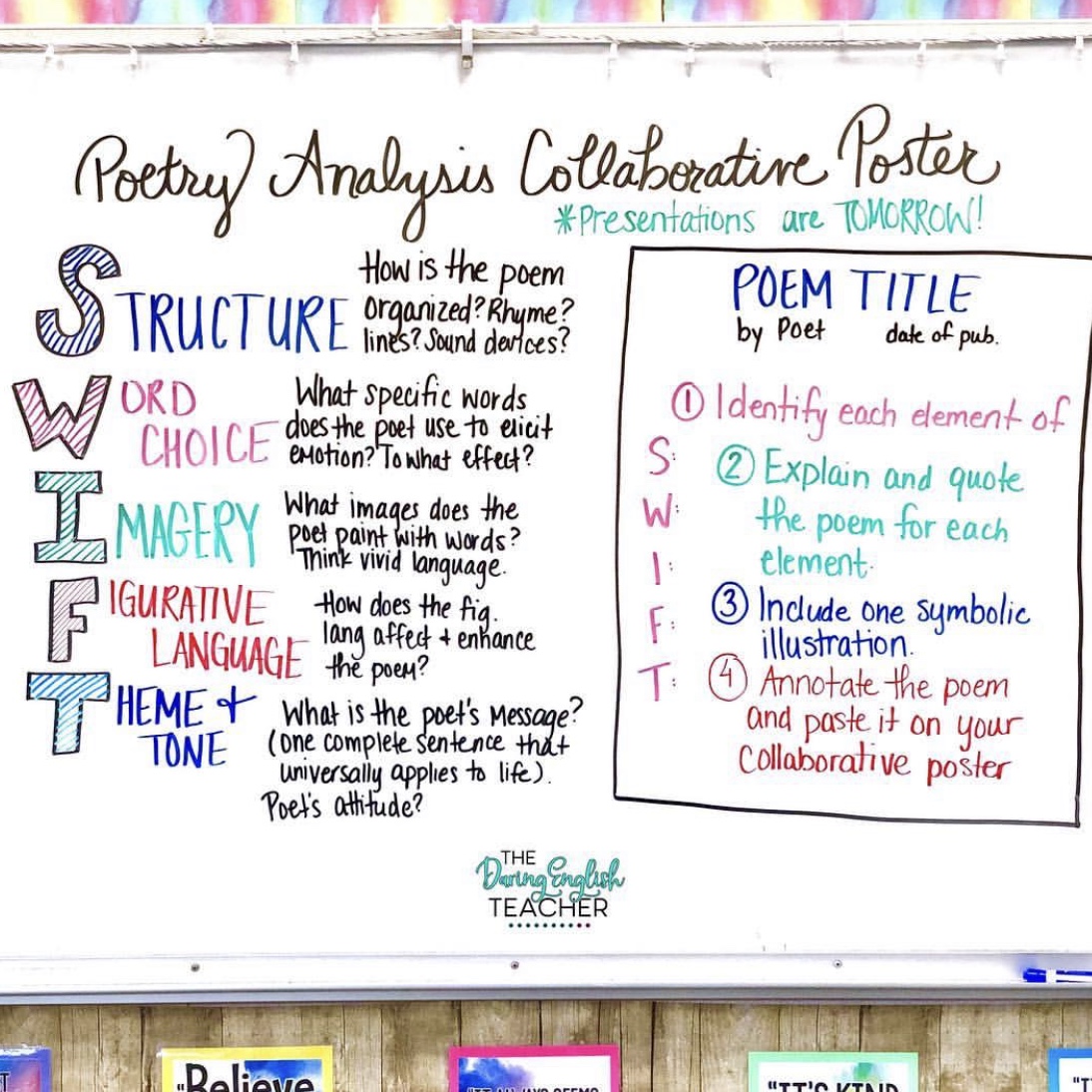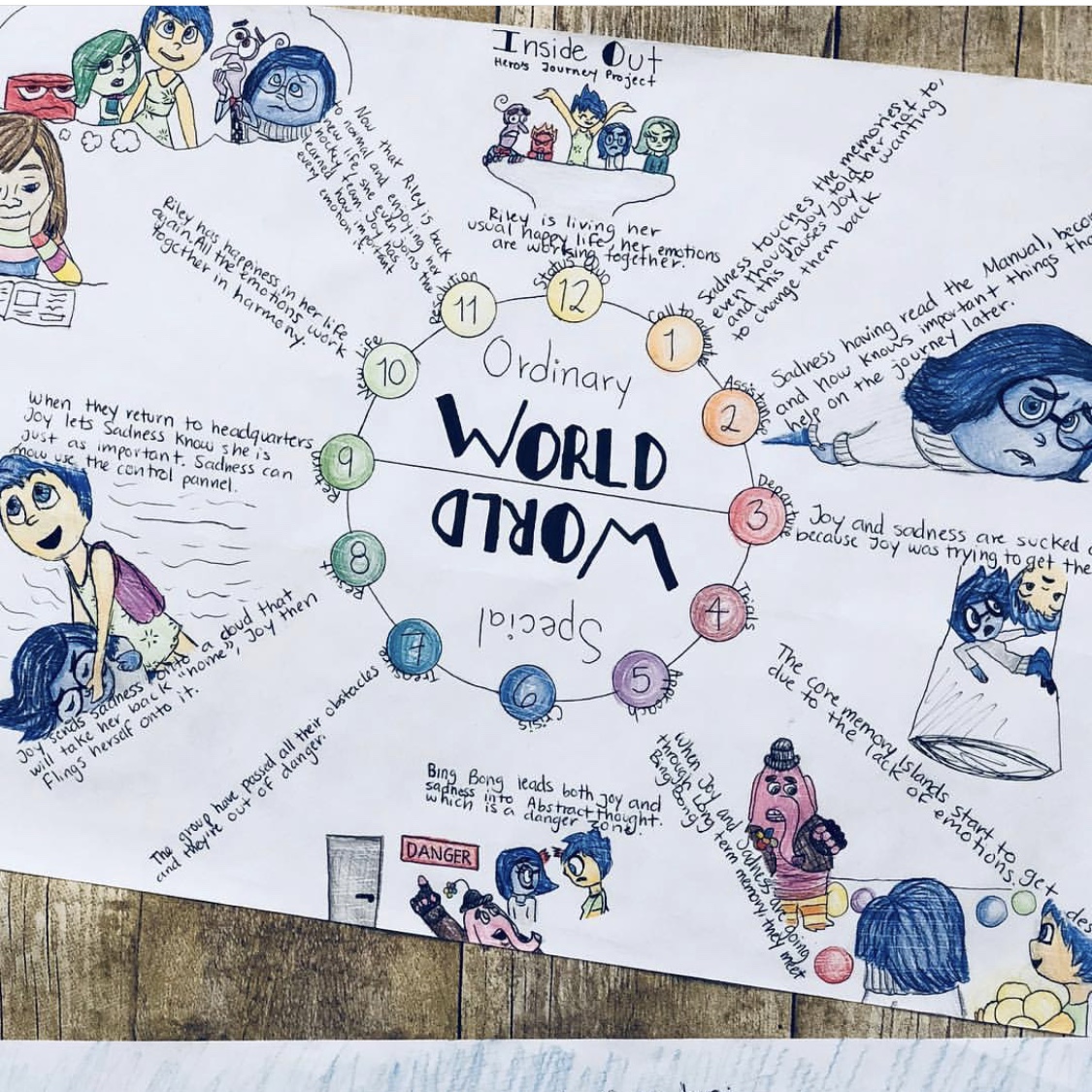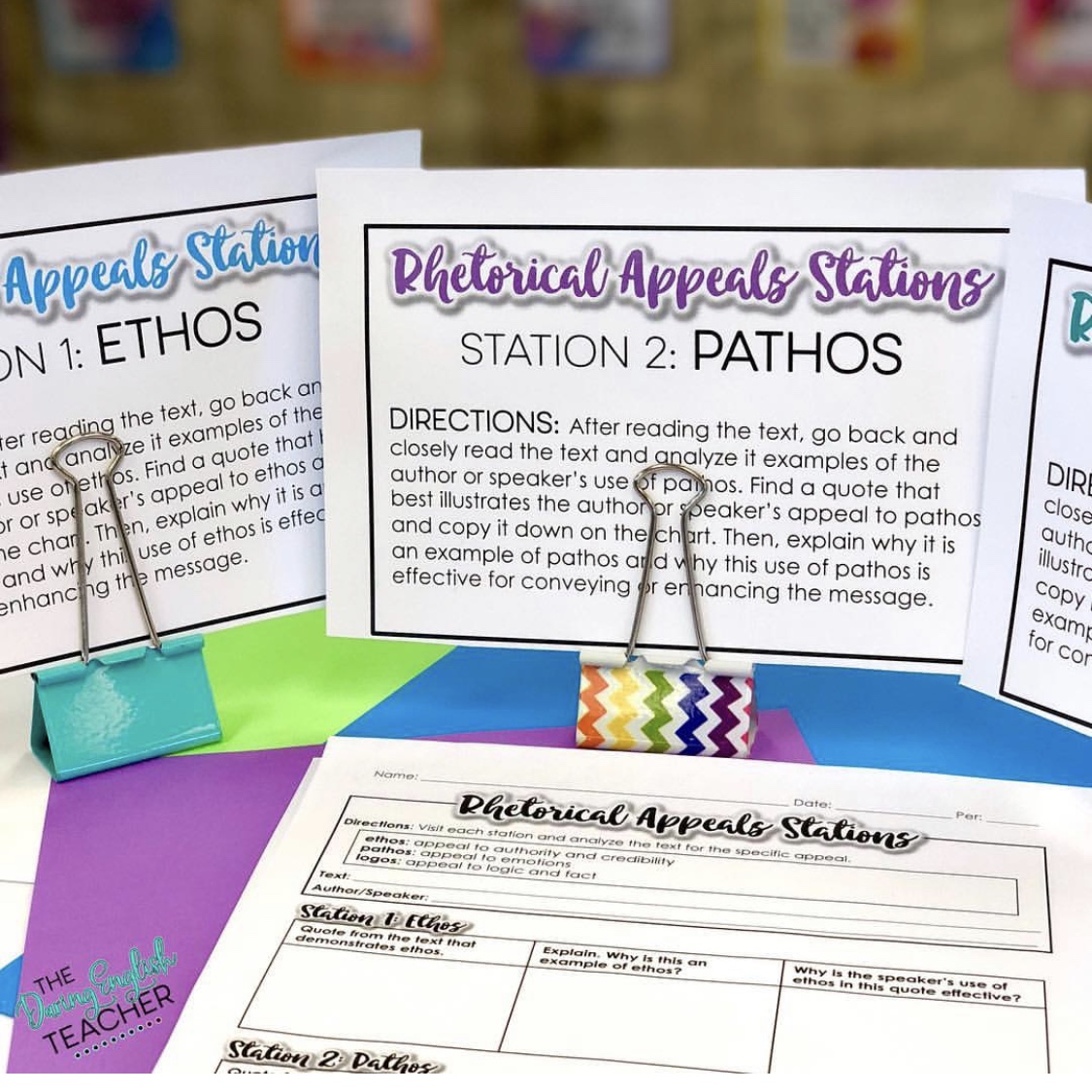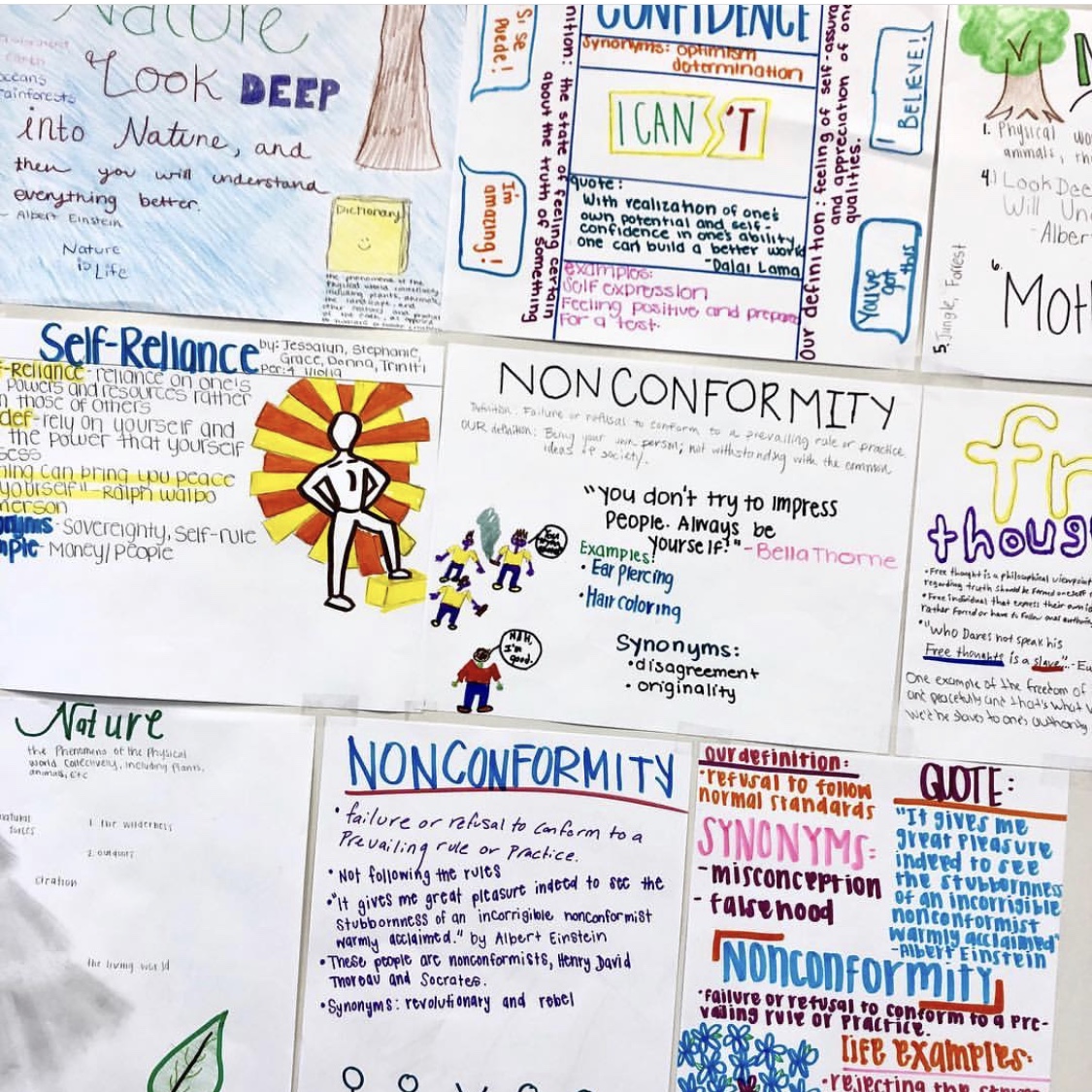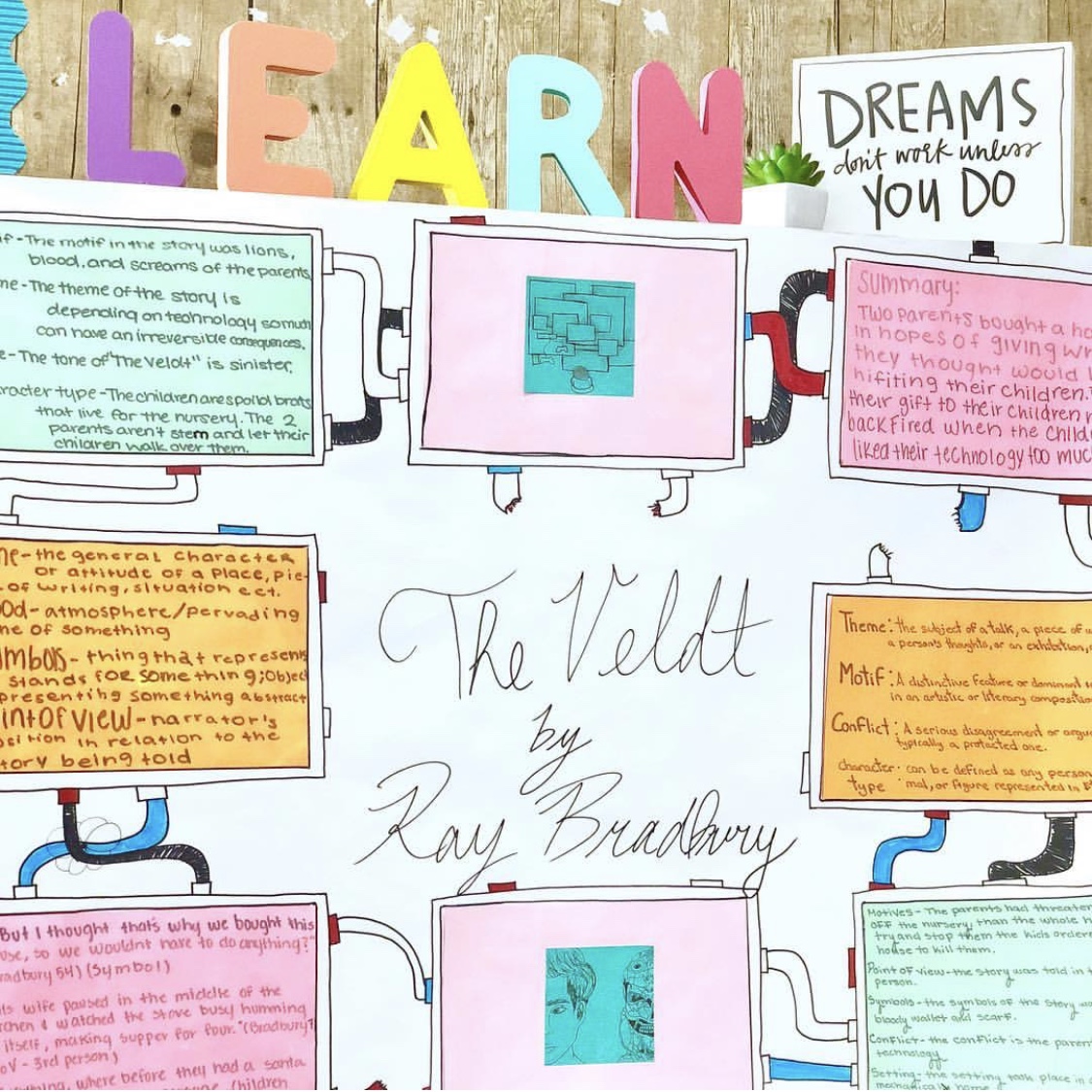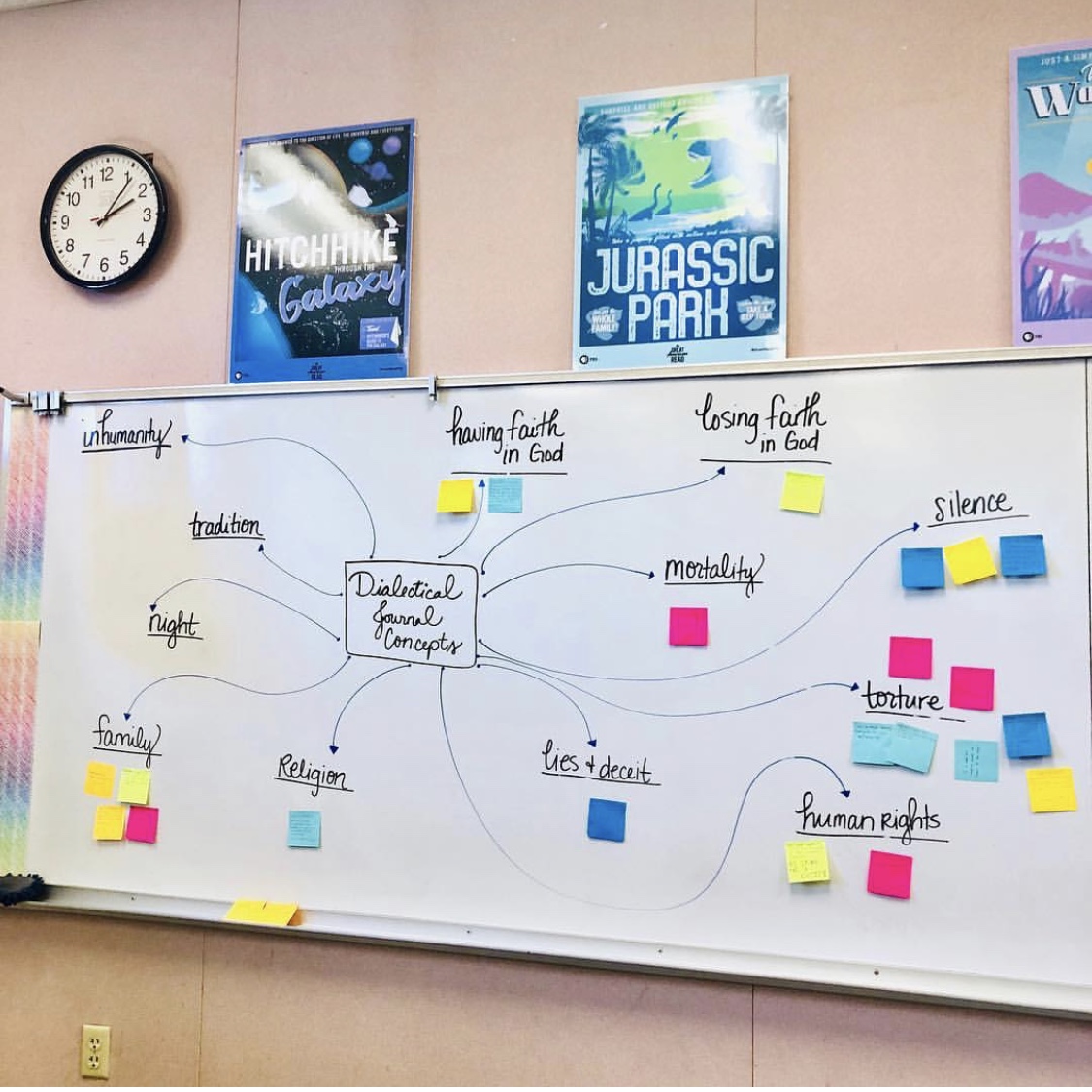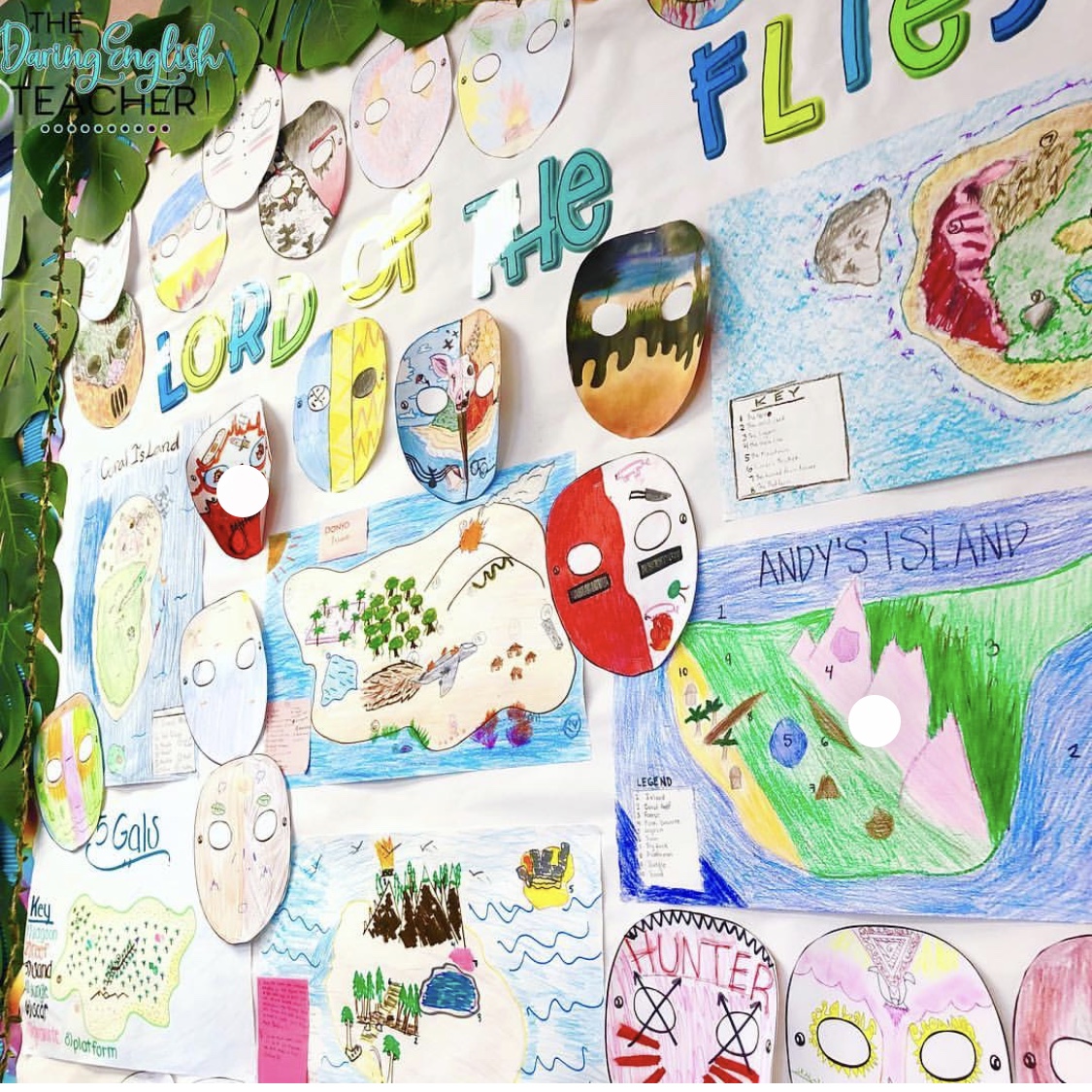This past school year was a great one. With every school year that passes, I like to take a moment and reflect on activities that were successful in the classroom and really think about why they worked.
Here are nine of my top activities from this previous school year.
SWIFT Poetry Analysis Collaborative Poster Projects
As a way to have my students practice their poetry analysis skills while also building their self-efficacy, my students worked on these collaborative posters.
Using the acronym SWIFT (structure/symbolism, word choice, imagery, figurative language, and theme and tone), my students analyzed a variety of poems about a similar subject. Not only did the read and annotate the poems, but they also identified each of the SWIFT elements, provided a quote, and explained how each element impacted the poem.
Once students complete the poetry analysis posters, we spent some time in class conducting informal presentations. Student groups presented the posters. I completed this project with my sophomore classes.
Why this worked: Students collaborated with one another to help each other as they worked on a new skill.
For more information about this project, you can read this blog post.
Hero’s Journey Literary Project
Toward the end of my short story unit with my sophomores, I like to review the Hero’s Journey archetype. We watch a quick video, discuss the various stages of the Hero’s Journey, use some familiar animated movies as examples, and then my students work together to create this Hero’s Journey poster.
Usually, they work together in small groups of three, and I give them about two days in class to work on the assignment. Once my students are done with the poster and have demonstrated that they understand the archetype, we read a short story as a class and analyze the Hero’s Journey elements of that story.
Why this worked: Students were able to choose their own Hero’s Journey story for this project, so that generated a lot of student interest. Whenever kids get a say in what they do, there is more buy-in.
For more information about this project, you can read this blog post.
Rhetorical Appeals Learning Stations
Rhetoric is one of my favorite units to teach. I love reading significant and persuasive speeches with my students and teaching them how to analyze the language. I love seeing that moment when they get it -that moment when they realize just how powerful language is.
This year, I added rhetorical appeals learning stations to my rhetorical analysis unit. For this activity, students spent one station analyzing ethos, one station analyzing pathos, and one station analyzing logos.
Why this worked: Adding movement and collaboration to the classroom is a great way to break up the monotony of traditional learning. Students learn best when they are active participants in the process.
You can see more about my rhetorical analysis unit here.
Intro to Transcendentalism Exploratory Posters
Before my juniors started learning about transcendentalism, I had them explore the five tenets of transcendentalism as an inquiry-based introductory activity.
For this activity, I placed my students in small groups, and I assigned each group a different tenet. This type of poster project is a quick one, and I don’t even give my students an entire class period, roughly 55 minutes, to work on the poster. As I explain this activity to them, I make sure that I emphasize that I am looking for content. I want to see that they explored the tenet and that they are beginning to understand it.
For the posters, students wrote their own definition of the word, three synonyms, a quote about the tenet, and a visual representation.
Once students completed the posters, the groups presented their posters to the class as the class took notes on the five tenets of transcendentalism.
Why this worked: This introductory activity was student-focused. The students were in charge of their learning, and they essentially became the experts of their group’s tenet. Furthermore, they were also responsible for teaching their peers about the tenet they researched. I completed this activity with my juniors.
Listening Skills ELA Test Prep Escape Room
In my state, juniors take the standardized state test -the SBAC. This test contains a listening portion of the test that requires students to listen to nonfiction articles and answer comprehension and analysis questions.
To help my juniors prepare for this test, they completed a listening-skills escape room. This escape room is one of my favorites because it closely imitates the state test. My students listened to an audio file. In fact, I had them listen twice and also take notes to practice good test-taking skills. Then, my students worked together in groups of six to complete all of the tasks.
Escape room days are always a blast. They are high-energy, fast-paced days that engage even the most reluctant learners.
Why this worked: Escape rooms are one of the best ways to engage students. I’ve done a handful of escape rooms in my classroom, and I always have 100% participation. It is amazing.
You can see more about my ELA Listening Skills Escape Room here.
Short Story Collaborative Review Poster Projects
This short story poster project has quickly become a staple in my classroom. At the end of our short story unit, and before we take a comprehensive test on all of the stories we read, my students work together in small groups to complete short story collaborative review posters.
Each group is assigned a different short story that we read in class. They then go back and review their designated short story and identify and analyze various literary elements. I also have my students include a summary of the short story as well. Since this serves as our review, students usually have about a class period and a half to work on their posters. I encourage them to divide and conquer; I also emphasize that I am looking for content over aesthetics.
When students complete their posters, each group presents the poster to the class. Since I do this as a review activity before our end of unit test, presentations are a bit more formal. I require student groups to come up to the front of the classroom to present. I also require every student to present an aspect of the poster. As students are presenting their posters, the rest of the class takes review notes to help them prepare for the unit test.
Why this worked: This is a fun and engaging student-centered review activity that generates discussion about the texts. Since we already read, studied, and analyzed the text in class during the prior weeks, students are able to dig a little deeper and discover more about the text.
For more information about this project, you can read this blog post.
Dialectical Journal Concepts
When I teach novels, I like to have my students complete notebooks as they read. The notebooks contain two main elements: dialectical journals and basic comprehension questions that we answer together in class as we read (one, to keep up engagement as we read, and two, to help prevent copying and cheating. If we answer the questions together in class as opposed to assigning them as homework, students are less likely to text each other pictures of the answers).
For the dialectical journals, I provide my students with a handful of big-picture thematic concepts that all relate to the novel. For each dialectical journal entry, students write and cite the quote, explain its significance, and then connect it to one of the concepts. I do this because once we are done reading the novel, students will then have categorized quotes pre-selected that they can use for their essay at the end of the novel.
Why this worked: When I plan my units, I like to plan backward. I always have the end-goal in mind. With that said, I make sure that the concepts we use are ones that students can apply and discuss in their essays.
You can read more about how I assign dialectical journals and even download a free template in the classroom in this Secondary English Coffee Shop blog post.
Lord of the Flies Mid-Novel Review Escape Challenge
I love the day when my students compete against one another in this Lord of the Flies review activity. When I assign this activity, my students need to place all of the events in chronological order from chapters 1-6. I have them complete all six chapters together at once because it is more challenging.
This activity works well because it generates authentic conversation about the story. Students review the events of the story, which then helps them prepare to read the final half of the story.
Why this worked: It is a fun activity and the kids get super competitive. Since students complete this activity in their teams, they are already familiar with working with one another. Plus, it gets pretty intense. The kids debate and even argue about the events in the story.
You can see more about my Lord of the Flies Mid-Novel Review Escape Challenge here.
Lord of the Flies Team Competition
Teaching novels from the literary canon can be a bit cumbersome sometimes, especially if students cannot relate to the characters or the conflict. One way that helps overcome this is by teaching Lord of the Flies as a team challenge.
I started doing this a couple of years ago, and I keep refining my challenge. It still isn’t quite where I’d like it to be, but it sure is fun.
Before we read the novel, I place my students into six groups of six students each. I carefully group my students to make sure that each group is pretty even in regards to ability level; this is especially helpful in my inclusion classes.
As we read the novel, my students compete in a variety of activities that assess and challenge their literary knowledge. Some of the challenges include a map-making challenge, mask-making challenge, quiz challenges, and the mid-novel review that I mentioned above.
Why this worked: This is a fun and engaging way to get through a pretty tough text. Because they are working together in teams, the students have more ownership in their learning.
To read more about how I game-ify Lord of the Flies, check out this blog post.

